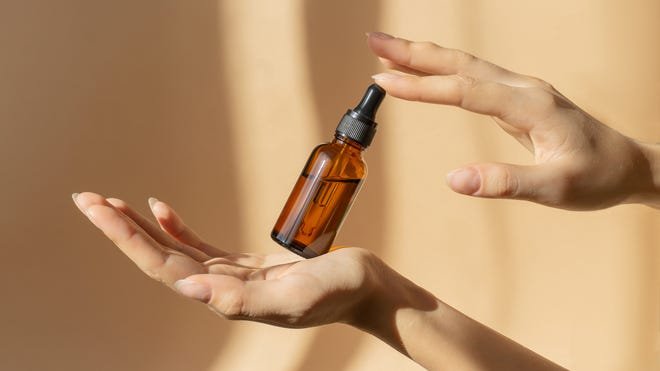You may have started looking into essential oils in hopes of solving a variety of health concerns, such as anxiety, insomnia, or nausea.
Essential oils usually come in small, dark bottles and come in a variety of strong scents. But what exactly are essential oils? And are they good for you? Medical experts reveal what you need to know before trying them.
What are essential oils?
According to the Johns Hopkins University School of Medicine, essential oils are fragrant plant extracts made by steaming or pressing plants. Essential oils are often used in aromatherapy, the centuries-old practice of inhaling these oils or absorbing them through the skin to treat certain health conditions.
What are some examples of essential oils?
There are dozens of essential oils to choose from. According to Johns Hopkins University, some of the most popular include lavender, tea tree, peppermint, and lemon oil.
About essential oilsWhat oils to use, how to use them and safety tips
Are essential oils good or bad for you?
Some studies have shown that essential oils may have some benefits for health issues: lavender essential oil may help with anxiety, depression, and sleep, while peppermint and ginger may help relieve nausea and vomiting.
But experts warn that much is still unknown about how essential oils work, as most of the studies conducted have not been of the highest quality.
“Doing quality research with essential oils can be difficult,” Lauren Heinicka, PharmD, BCPS, assistant professor at the University of Maryland School of Pharmacy, told USA TODAY. She was referring to double-blind studies, in which neither subjects nor researchers know whether they’re receiving a placebo or an active treatment until the end, to prevent bias.
But as Heinicka points out, it’s hard to fake an essential oil placebo: “You either smell the essential oil or you don’t.”
Johns Hopkins University said some laboratory studies had shown “promising” but that human trials had “mixed results”, with some showing efficacy and others showing no improvement in symptoms.
Heinicka says essential oils are likely safe if you inhale them, whether that be by putting a few drops on a diffuser, cotton ball, or nasal inhaler. If you use them topically, dilute them with coconut or jojoba oil first. And be sure to buy high-quality essential oils. Johns Hopkins University warns that some companies call their products “therapeutic grade,” but that this is an unregulated marketing term and does not indicate that the product is recommended by a medical professional.
“We encourage anyone who uses essential oils to tell their doctor or health care professional why and how they use them,” Heinicka said, adding that essential oils should be kept out of reach of children and pets. “It’s especially important for people who are pregnant, nursing, taking medication, or have a history of seizures to consult with their health care professional.”
more:Can smelling candles really make you sick?

